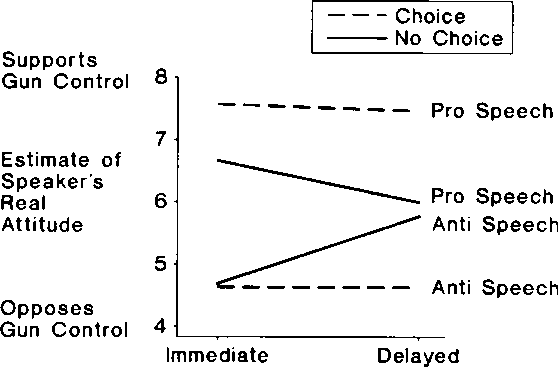Approved: Fortect
In some cases, your computer may display a speaker assignment error. There can be several reasons for this problem.
This article is about the psychology of social vocation. Legal information about this termine, see Basic error.

In social psychology, the fundamental attribution error (FAE), also known as matching bias plus attribution effect, is the tendency of people to underestimate situational and environmental explanations of observed human behavior, with emphasis on dispositional behavior, that is, explanations. based on personality. This effect has been described as “a tendency to believe that people’s actions reflect them,” [1] , in which they reject their behavior (what those people do or say). attribute it to your personality and perhaps also sign it in the context of the situation.
Origin

This term was coined by Lee Som Ross [2] years after the classic experiences of Edward E. Jones and Victor Harris (1967). [3] Ross argued in a popular article that all fundamental attribution errors constitute the conceptual foundation of the field of social psychology. Jones wrote that he found Ross’s performance “too provocative and somewhat misleading,” and also laughed:and I had no reason to believe him. “ [4] Some psychologists, including Daniel Gilbert, have used the term” fit bias “to deal with the fundamental error of attributing other phenomena, the former being a recurring explanation of the latter. [5] < / sup>
To simply illustrate the behavior that attempts to explain attribution error thinking, let’s take a close look at the situation in which Alice, the driver, is cut off by Bob in traffic. Alice E. connects Bob’s behavior with his main personality, for example, he thinks about himself most of the time, he is selfish, he is always dumb, he is a new driver; she does not think this is a common situation, for example, he will bypass her flight, his wife will go to the hospital, his daughter is likely to have contractions at school. Alice could well have made the opposite mistake and apologized, saying that she was influenced by some reasons related to the situation, for example, a mistake, for example, I was an idiot, I disdain others, I drive badly. [6]
Classic Demonstration Study: Jones And Harris (1967)
Jones and Harris hypothesized, based on reporters inference theory, that surprisingly people attribute freely chosen behavior to a fairly random disposition and behavioral situation. The hypothesis was baffled by a fundamental attribution error. [3]
Throughout the experiment, the subjects read essays for and with Fidel Castro. They were then asked to rate the pro-Castro position of the essayists. If subjects thought that the author’s positions were freely chosen for or against Castro, they would usually rate people who liked Castro as having a more positive attitude towards Castro. However, they contradict Harris’s original hypothesis, when subjects ended up saying that the authors’ positions were revealed by the lottery, the writers speaking on behalf of Castro, as well as on average, had a more commendable attitude towards Castro than those who opposed him. In other words, the subjects were unable to correctly assess the impact of situational constraints.eni, imposed on all criminals; they could not fail to ascribe good faith to the authors. The new group provided more internal guidance to all authors.
Critical
The hypothesis that people are systematically inclined to attribute characteristics to behavior (at least for the purposes of other people’s behavior) is disputed. Epstein and Teraspulsky [7] tested subjects to find out whether they rated the empirical relationship between behaviors as complete, insufficient, or correctly assessed. (These behavioral consistencies appear to be the “characteristics” that describe.) They found that related correlations between behaviors were highly correlated with empirically observed correlations between these behaviors. The subjects were demanding even at very small correlations, and their own confidence in the association depended on how strongly they were in conflict (i.e., subjects could become aware of the zone’s influence over time and use intelligent strategies to make decisions, Epstein concluded, that, “О “Far from being die-hard believers as previously thought, when relationships between real behavior are available,” Epstein concluded, “in many important respects they have become equal to the psychometric rules of intuition.” [7]
Although a meta-analysis of approximately 173 qualified studies for each subject-observer asymmetry available prior to 2005 was described as “robust, well-established and ubiquitous,” surprisingly, the magnitude of a good effect is close to zero. … [8] However, these analyzes systematically checked whether the effect was true. Their analysis showed that asymmetry could only be seen when: 1. the other person was described as highly unusual, 2. when hypothetical (rather than real) events were recognized, 3. when people were close (they knew two others), or 4 … when researchers were associated with high degrees of freedom. [8] It turns out that in these circumstances, there are actually two asymmetries: there were negative events asymmetrically related to the fact that you helpedtraits of other people, but the opposite was considered a positive event and supported the selfish bias, and not the asymmetry between the actor and the observer. Also check out Mallet’s 2006 meta-analysis. [8]
Explanations
Several lessons on predicting the fundamental error of attribution and outcome compete in explaining it, and will be skewed if it does not. Basic examples:
- Fair world error. The belief that people get what they deserve and that they are worth what they get, a concept that was in fact first theorized by Melvin J. Lerner (1977), that situational causes – which are unchanging or uncontrollable – satisfy our need to believe in what the galaxy is, and it is right that we turn off our lives. We are interested in truly seeing the world just because it reduces our perceived threats, [10] [11] gives us insight into security and helps us in difficult times … in alarming situations and circumstances and brings psychologicalI benefit all of us. [12] However, the just world hypothesis also increases people’s tendency to recognize and minimize the consequences of an accident or even tragedy, such as rape [13] [14] domestic violence, [15] to test a person’s insensitivity to such events. People may even attribute the consequences to the mistakes of the victim in a “past life” when they need to seek an excuse for their imperfect outcome. [page required] [16]
- The importance of the actor. We tend to associate the observed effect with possible causes that usually attract our attention. When we observe other people, this person is the main subject of research, while the situation is overlooked when
Approved: Fortect
Fortect is the world's most popular and effective PC repair tool. It is trusted by millions of people to keep their systems running fast, smooth, and error-free. With its simple user interface and powerful scanning engine, Fortect quickly finds and fixes a broad range of Windows problems - from system instability and security issues to memory management and performance bottlenecks.
- 1. Download Fortect and install it on your computer
- 2. Launch the program and click "Scan"
- 3. Click "Repair" to fix any issues that are found

Speed up your computer's performance now with this simple download.For example, if you punish a “lazy employee” for being a newcomer to a meeting and then apologize for being late that day, you have made a basic attribution error. The main attribution error is how people perceive the land.
In addition, there are many types of attribution errors such as largest attribution error, fundamental attribution error, subject-observer error, and hostile attribution error. Each of these personal biases describes a pattern that shoppers exhibit when they think about the reasons behind different behaviors.
Attributions arise when people try to interpret or find an explanation for why people behave in a certain way. Inconsistency between actor and observer. However, Stage 2 of the most common attribution errors can be a fundamental attribution error and our own selfish bias.


